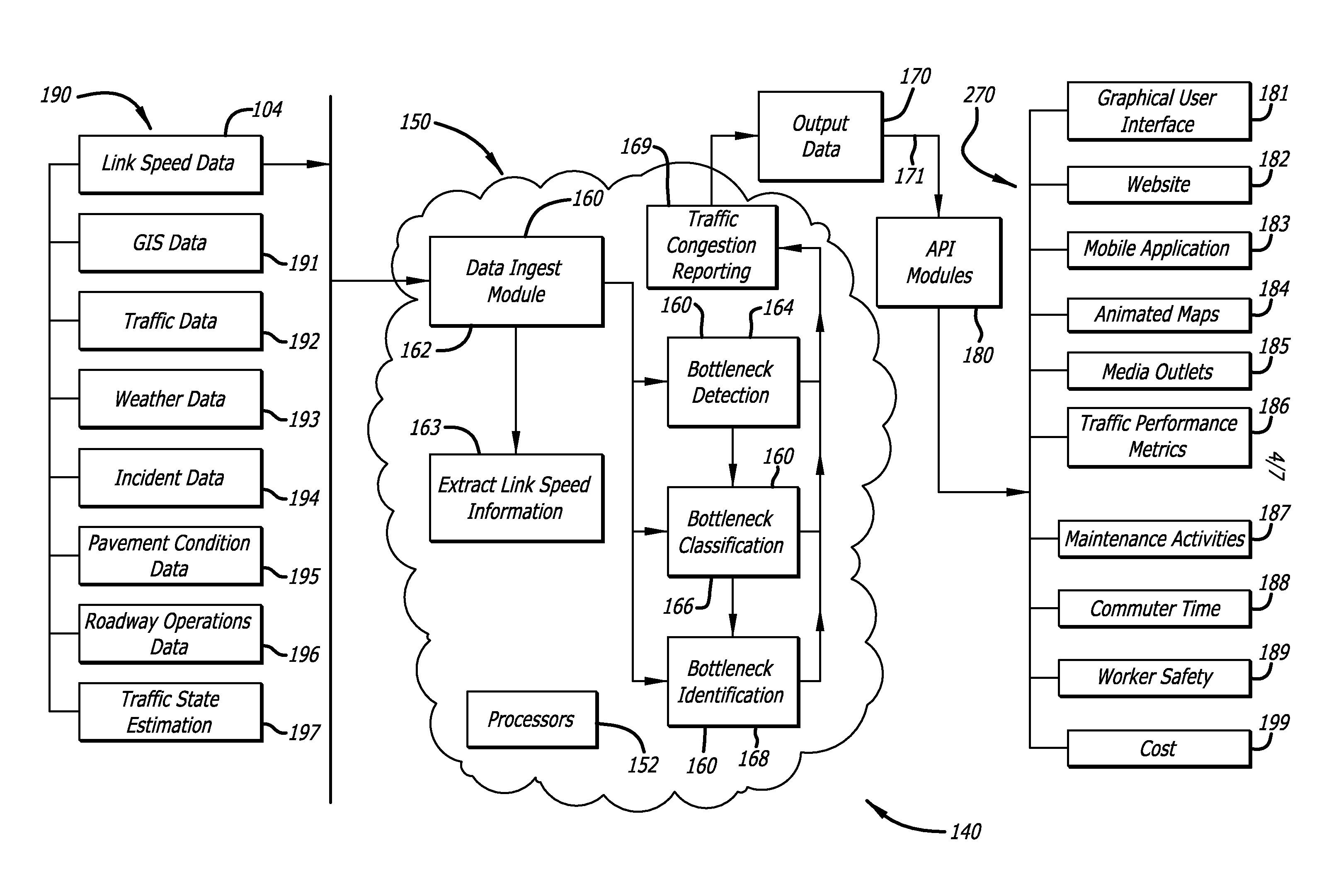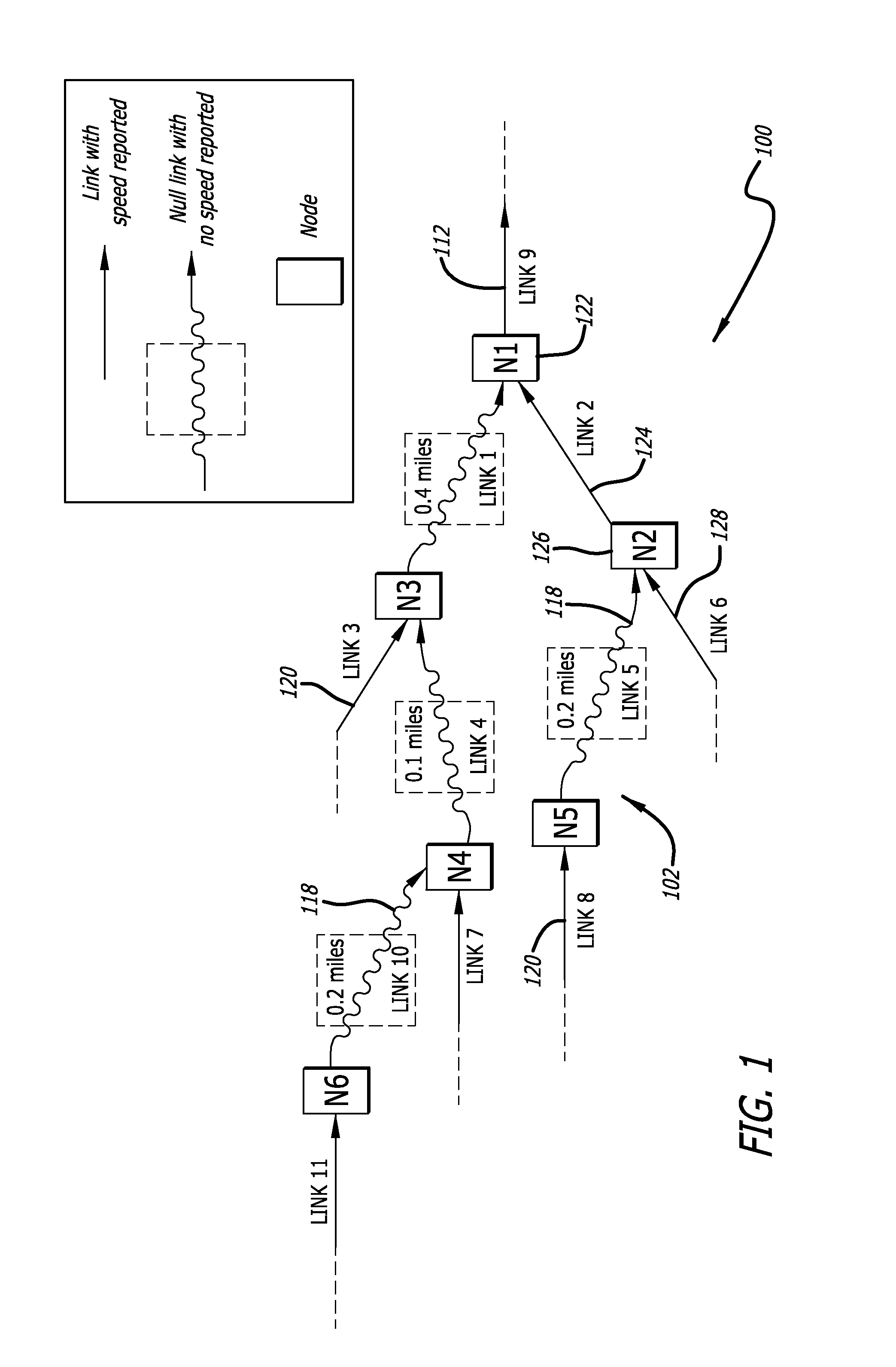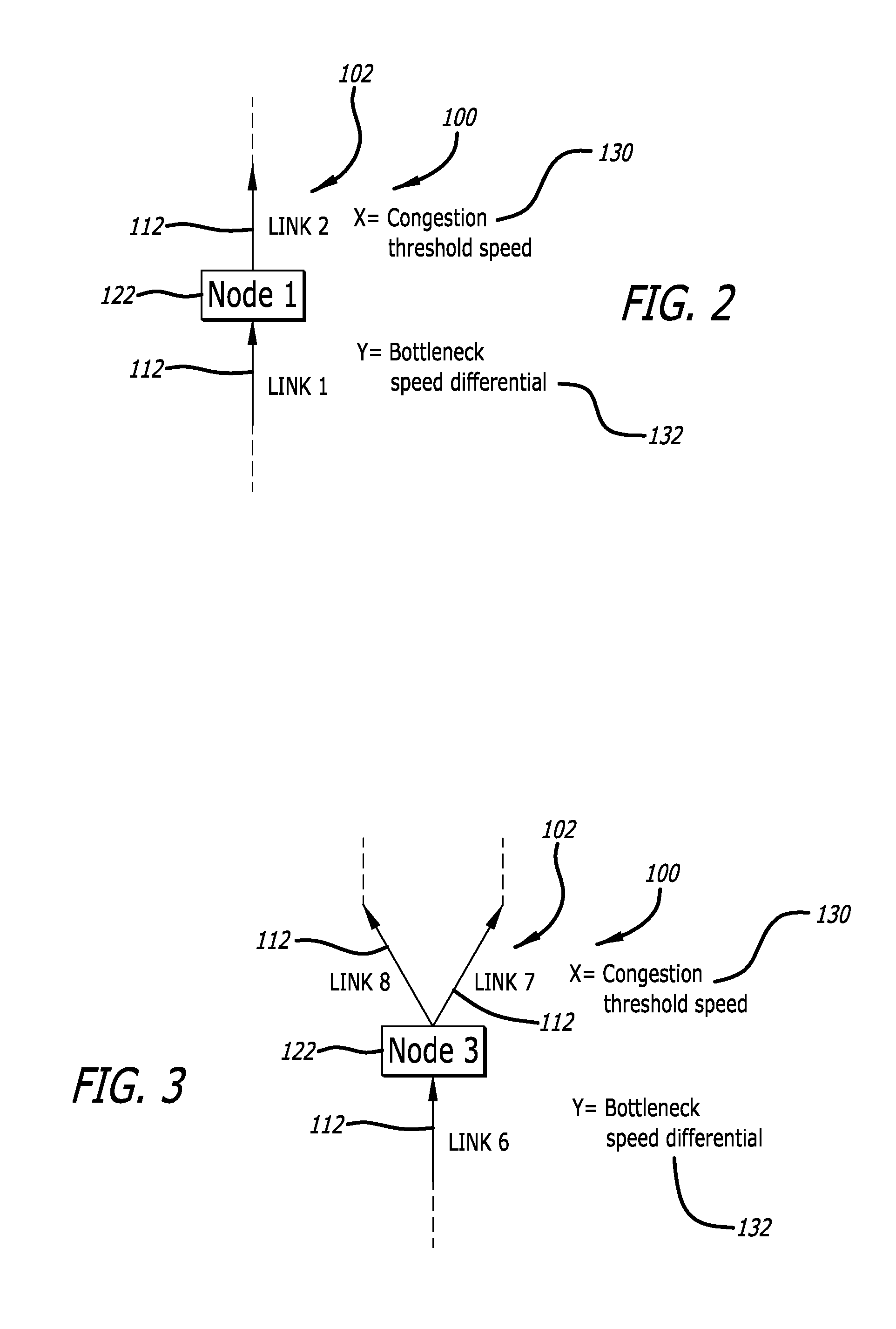Traffic bottleneck detection and classification on a transportation network graph
a transportation network and bottleneck detection technology, applied in the field of traffic congestion detection and analysis, can solve problems such as congestion, queue of slow or stopped vehicles, and lack of existing analysis methods
- Summary
- Abstract
- Description
- Claims
- Application Information
AI Technical Summary
Benefits of technology
Problems solved by technology
Method used
Image
Examples
Embodiment Construction
[0021]In the following description of the present invention reference is made to the exemplary embodiments illustrating the principles of the present invention and how it is practiced. Other embodiments will be utilized to practice the present invention and structural and functional changes will be made thereto without departing from the scope of the present invention.
[0022]As noted above the present invention discloses a system and method of detecting traffic bottlenecks on a roadway network by analyzing speed data for roadway links, or segments, for specified time periods. This “link-speed” data is used to detect the head and queue of bottlenecks on the roadway network, represented as a directed graph of the links comprising the roadway network to be analyzed. FIG. 1 is an illustration of such a directed graph 100 of links 112 in an exemplary roadway network 102, where link-speed data 104 is analyzed to detect the head 108 and queue 110 of bottlenecks 106.
[0023]The link-speed data...
PUM
 Login to View More
Login to View More Abstract
Description
Claims
Application Information
 Login to View More
Login to View More - R&D
- Intellectual Property
- Life Sciences
- Materials
- Tech Scout
- Unparalleled Data Quality
- Higher Quality Content
- 60% Fewer Hallucinations
Browse by: Latest US Patents, China's latest patents, Technical Efficacy Thesaurus, Application Domain, Technology Topic, Popular Technical Reports.
© 2025 PatSnap. All rights reserved.Legal|Privacy policy|Modern Slavery Act Transparency Statement|Sitemap|About US| Contact US: help@patsnap.com



